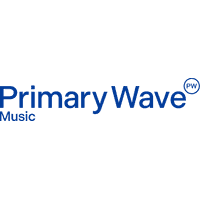Revenue Sharing
Revenue sharing in the music industry refers to the distribution of income generated from music sales, streaming, licensing, and other sources among stakeholders such as artists, record labels, publishers, and platforms. This business model ensures all parties involved in creating, distributing, or promoting music receive compensation based on predetermined agreements. Modern examples include streaming platforms like Spotify sharing revenue with artists based on stream counts, and social media platforms like Facebook sharing ad revenue with music rights holders when their content is used in user-generated videos.
Sources
Information compiled from multiple sources including Stripe's revenue sharing guide, Facebook's Music Revenue Sharing announcement, and Wikipedia's definition of revenue sharing.
Updated:
Jun 4, 2025
Revenue Sharing
Revenue sharing in the music industry refers to the distribution of income generated from music sales, streaming, licensing, and other sources among stakeholders such as artists, record labels, publishers, and platforms. This business model ensures all parties involved in creating, distributing, or promoting music receive compensation based on predetermined agreements. Modern examples include streaming platforms like Spotify sharing revenue with artists based on stream counts, and social media platforms like Facebook sharing ad revenue with music rights holders when their content is used in user-generated videos.
Sources
Information compiled from multiple sources including Stripe's revenue sharing guide, Facebook's Music Revenue Sharing announcement, and Wikipedia's definition of revenue sharing.
Updated:
Jun 4, 2025
Revenue Sharing
Revenue sharing in the music industry refers to the distribution of income generated from music sales, streaming, licensing, and other sources among stakeholders such as artists, record labels, publishers, and platforms. This business model ensures all parties involved in creating, distributing, or promoting music receive compensation based on predetermined agreements. Modern examples include streaming platforms like Spotify sharing revenue with artists based on stream counts, and social media platforms like Facebook sharing ad revenue with music rights holders when their content is used in user-generated videos.
Sources
Information compiled from multiple sources including Stripe's revenue sharing guide, Facebook's Music Revenue Sharing announcement, and Wikipedia's definition of revenue sharing.
Updated:
Jun 4, 2025
Related News
Related News
Related News

Tech & Innovation
Nov 25, 2025
2 min read
Game My Fan Teams with Primary Wave for the World’s First “Album as a Game”
Taps into the $80 billion gaming market for artists’ direct-to-fan engagement

Game My Fan Teams with Primary Wave for the World’s First “Album as a Game”
Taps into the $80 billion gaming market for artists’ direct-to-fan engagement
Tech & Innovation
Nov 25, 2025

Tech & Innovation
Nov 25, 2025
2 min read
Game My Fan Teams with Primary Wave for the World’s First “Album as a Game”
Taps into the $80 billion gaming market for artists’ direct-to-fan engagement

Tech & Innovation
Nov 17, 2025
1 min read
Roc Nation Launches Comprehensive Distribution Dashboard Geared Towards Independent Artists
Artists can sign up to use the all-in-one platform for free

Roc Nation Launches Comprehensive Distribution Dashboard Geared Towards Independent Artists
Artists can sign up to use the all-in-one platform for free
Tech & Innovation
Nov 17, 2025

Tech & Innovation
Nov 17, 2025
1 min read
Roc Nation Launches Comprehensive Distribution Dashboard Geared Towards Independent Artists
Artists can sign up to use the all-in-one platform for free

Tech & Innovation
Aug 28, 2025
2 min read
Guild Raises $2m to Help Creators Own and Monetize Their Work
The social support platform is launching in public beta

Guild Raises $2m to Help Creators Own and Monetize Their Work
The social support platform is launching in public beta
Tech & Innovation
Aug 28, 2025

Tech & Innovation
Aug 28, 2025
2 min read
Guild Raises $2m to Help Creators Own and Monetize Their Work
The social support platform is launching in public beta

Deals & Signings
Aug 6, 2025
1 min read
Kobalt’s Deal with ElevenLabs to Split Royalties Between Publishing and Recorded Music
The agreement is a part of Kobalt's partnership with ElevenLabs AI creation platform, Eleven Music

Kobalt’s Deal with ElevenLabs to Split Royalties Between Publishing and Recorded Music
The agreement is a part of Kobalt's partnership with ElevenLabs AI creation platform, Eleven Music
Deals & Signings
Aug 6, 2025

Deals & Signings
Aug 6, 2025
1 min read
Kobalt’s Deal with ElevenLabs to Split Royalties Between Publishing and Recorded Music
The agreement is a part of Kobalt's partnership with ElevenLabs AI creation platform, Eleven Music

Live
Jul 22, 2025
1 min read
Setmixer Launches Marketplace for Live Recordings from UK Venues
The startup promises new revenue streams for artists and venues

Setmixer Launches Marketplace for Live Recordings from UK Venues
The startup promises new revenue streams for artists and venues
Live
Jul 22, 2025

Live
Jul 22, 2025
1 min read
Setmixer Launches Marketplace for Live Recordings from UK Venues
The startup promises new revenue streams for artists and venues

Tech & Innovation
Jun 30, 2025
1 min read
Spotify Targets YouTube Creators With New Video Deals
The streaming platform is evolving its retention and engagement strategies

Spotify Targets YouTube Creators With New Video Deals
The streaming platform is evolving its retention and engagement strategies
Tech & Innovation
Jun 30, 2025

Tech & Innovation
Jun 30, 2025
1 min read
Spotify Targets YouTube Creators With New Video Deals
The streaming platform is evolving its retention and engagement strategies

Charts & Consumption Data
May 27, 2025
1 min read
Spotify Royalties for Australian Artists Hit $300 million
The amount is up 14% year on year

Spotify Royalties for Australian Artists Hit $300 million
The amount is up 14% year on year
Charts & Consumption Data
May 27, 2025

Charts & Consumption Data
May 27, 2025
1 min read
Spotify Royalties for Australian Artists Hit $300 million
The amount is up 14% year on year

Tech & Innovation
May 26, 2025
1 min read
YouTube Content ID Payouts Surpassed $12 billion in 2024
The figure rose $3 billion in 12 months

YouTube Content ID Payouts Surpassed $12 billion in 2024
The figure rose $3 billion in 12 months
Tech & Innovation
May 26, 2025

Tech & Innovation
May 26, 2025
1 min read
YouTube Content ID Payouts Surpassed $12 billion in 2024
The figure rose $3 billion in 12 months
📨 Subscribe to NIF
Get news dropped in your inbox 👇
Featured Jobs
Selected open roles from Jobs by ROSTR











